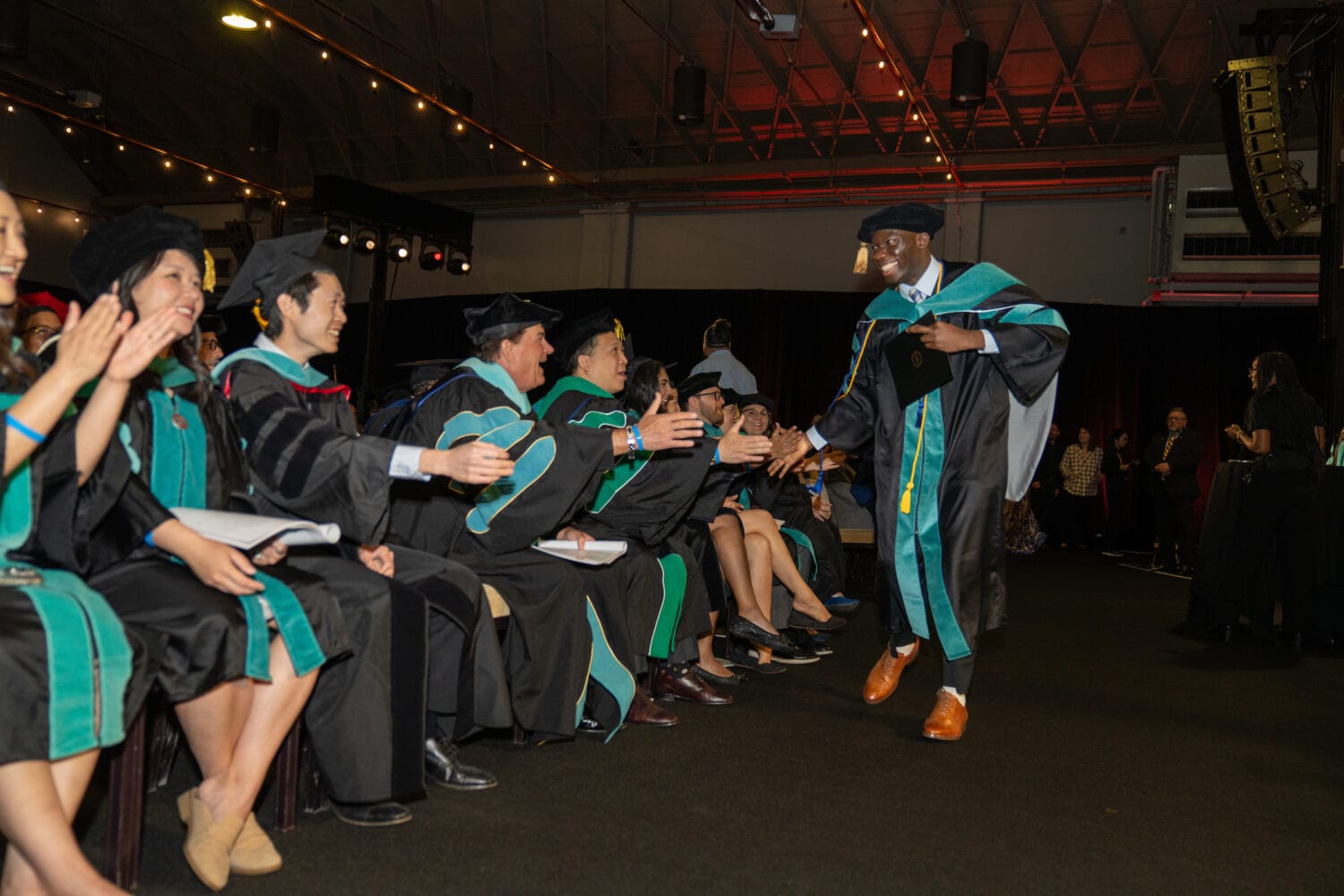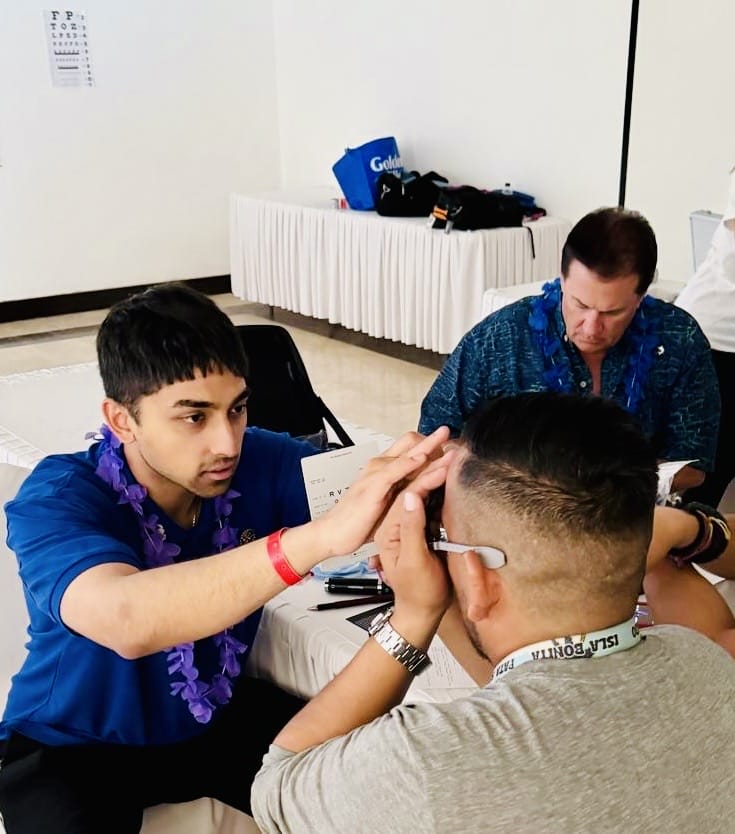WesternU provides Vision Rehabilitation Service
Pomona resident Raul Orona, 8, went through an extensive eye examination Feb. 25, 2013 as part of the Vision Rehabilitation Service at the Western University of Health Sciences Eye Care Center.
He has an iris coloboma in his left eye and choroidal colobomas inside both eyes, structures inside the eyes that didn’t develop fully. He had surgery and has worn glasses since age 2, said his mother, Martha Orona.
“I heard good things about this clinic,” she said. “I’m pretty happy that he’s here. I’m hoping it will improve his vision.”
Orona said she is working with Raul’s teachers at school to get magnifiers and other tools to help him in class.
“I like that teachers at school are helping him with his vision and referring him to vision clinics,” she said.
Raul was one of six students examined during that day through the program organized by WesternU and the California School for the Blind (CSB).
Any child with a visual impairment who is being served by a teacher of the visually impaired or an orientation and mobility specialist is eligible for a free low vision rehabilitation exam every two years through the special CSB program at the Eye Care Center at Western University of Health Sciences.
WesternU provides all the doctors and evaluations, and the California School for the Blind provides magnifiers, monocular telescopes and sunglasses.
WesternU also received funding from the Allergan Foundation to provide prescriptive devices to needy children who are visually impaired. Sightsavers International will provide sophisticated electronic video magnifiers to needy school children who otherwise would not have the opportunity to utilize assistive technology.
The Fremont-based California School for the Blind and UC Berkeley have provided free low-vision clinics in Northern California for several years, under the leadership of CSB Superintendent Stuart Wittenstein, EdD.
The clinic is open to all eligible students throughout California, but due to its location mainly serves students in Northern California. CSB also organizes traveling clinics to other parts of the state, such as San Diego, Redding and Bakersfield. The partnership between CSB and WesternU is the first time another established institution is conducting ongoing clinics.
Alice Perez, a teacher for the visually impaired in the Azusa Unified School District, brought two students to the Feb. 25 clinic.
“It’s a very positive experience, and we are able to get some sunglasses and different monoculars for our students,” she said.
She works with visually impaired students throughout the San Gabriel Valley, traveling to different classrooms wherever she’s needed. She has about 20 students in her caseload, and she hopes to bring all of them to the WesternU Low Vision Clinic. She has a wide range of students, ages 3 to 22.
“(The WesternU doctors) can tell me things I can’t see on a regular eye report because maybe the student is nonverbal,” Perez said. “This helps me to help the student in the classroom.”
One requirement is for the student to bring a family member and his or her teacher for the visually impaired or mobility specialist to the appointment.
“This is a great opportunity for parents to learn more about how their child is using their vision at home and at school, and about assistive devices available to help them function to their highest potential,” said Linda Pang, OD, College of Optometry Coordinator of the Vision Rehabilitation Service. “We get the teachers involved. They talk about how the student is functioning at school, which can be very different than how they function at home.”
WesternU interns also benefit from participating in the vision rehabilitation clinics. They examine patients with various eye diseases, learn interprofessional skills, and provide a unique service to patients.
“When they graduate, they will have a broader perspective on how to help patients with vision impairments function as best as they can, which is very much in line with our mission statement,” Pang said.



